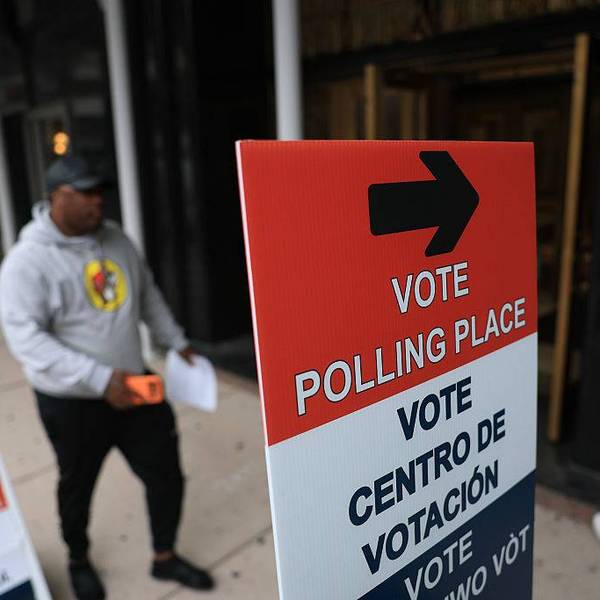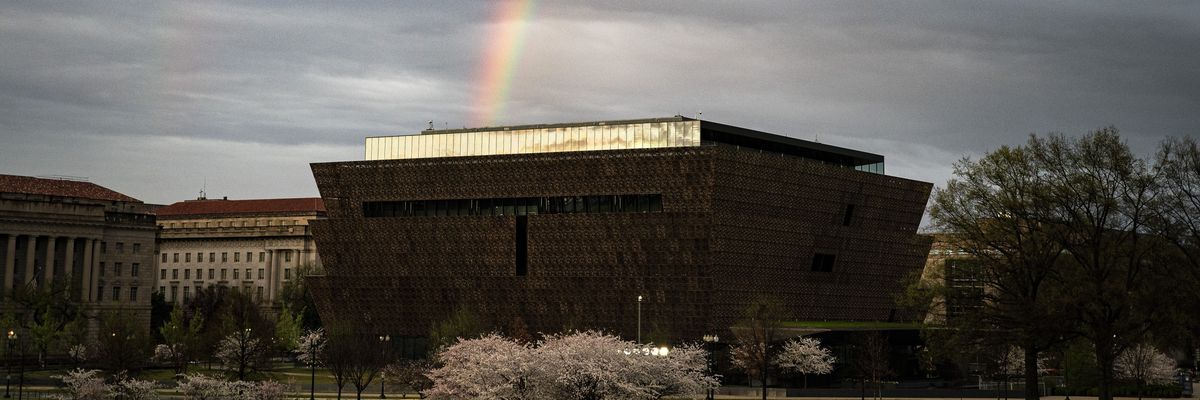In March, U.S. President Donald Trump issued an executive order titled Restoring Truth and Sanity to American History, targeting the Smithsonian Institution and its museums—including the National Museum of African American History and Culture—for promoting “divisive narratives.” In doing so, Trump continues a pattern of erasing federal websites about notable African Americans and undermining institutions that honor our full national story.
Trump’s campaign echoes other recent efforts to whitewash the past. For example, Mississippi Gov. Tate Reeves proclaimed April as Confederate Heritage Month, and recognized Confederate Memorial Day as a state holiday—one of several Southern states that continue to honor the Confederacy. These endeavors are part of a coordinated attempt to revise the Confederacy’s racist history and diminish the impact of slavery in the Civil War.
Last month, reports emerged of historic artifacts being removed from the African American History Museum. In response, civil rights leaders have formed a coalition and will hold a “Freedom to Learn” campaign and march at the museum. They know what I do: that the GOP’s coordinated efforts to whitewash the past cannot erase the truth we carry within us.
I did not have to go to the Smithsonian’s National African American History Museum to learn this history; it is seared in my memory and encoded in my and this nation’s DNA.
As an African American originally from Memphis, Tennessee, I learned about our nation’s complicated history from a young age. I grew up in the city where Dr. Martin Luther King Jr. was assassinated, where my parents were born under the yoke of Jim Crow segregation, and where cotton was king during slavery.
Some of that history I learned in school. Most of it came from my family who lived that history. They taught me not just to remember, but to bear witness.
Even the physical landscape of the South helped tell the story: Confederate monuments, parks, and highways named after Confederate generals. I saw the Confederate flag and “Riding with Forrest” bumper stickers, referencing Nathan Bedford Forrest, who helped found the Ku Klux Klan. They were everyday reminders of the brutal history of slavery that refused to stay buried.
I did not have to go to the Smithsonian’s National African American History Museum to learn this history; it is seared in my memory and encoded in my and this nation’s DNA. That’s why the GOP’s campaign to rewrite history will fail.
Recently, I visited D.C. with my 73-year-old mother. I was there to give a talk about my book, which examines how race and immigration status have affected access to healthcare. We visited the African American History Museum and Culture on a Monday. The line stretched outside, as it often does. Since opening in 2016, it has welcomed more than 12 million visitors—Black, white, young, old—each one seeking a fuller understanding of our shared past.
I had visited the museum before. But Trump’s latest threat made me want to return—and to bring my mom. As a child, she picked cotton and endured taunts from white kids as she and her siblings walked to their segregated school. She didn’t need the museum to validate her story. But it did. It also validated mine.
Inside, I stood with her in front of exhibits honoring W.E.B. DuBois and Ida B. Wells. Their legacy helped shape my career. As a sociologist, I teach about many of the historic events covered in the museum’s exhibits, which don’t shy away from the ugly contradictions of America’s founding ideals. Instead, they make them plain.
Etched inside the building is a quote from founding museum director Lonnie Bunch III: “[T]here is nothing more powerful… than a nation steeped in its history. And there are few things as noble as honoring our ancestors by remembering.”
That’s what this new wave of revisionism seeks to stop: truthful remembrance. But history doesn’t disappear when you shut down a website, threaten a museum’s funding, or remove museum exhibits. Despite banning books, stifling academic freedom, and targeting scapegoated groups that culminated in the genocide of European Jews, we still know about the Holocaust. Why? Because survivors carried that truth forward.
As we left the museum, another African American family was entering. The father asked me, half jokingly, “Have they changed anything in the museum yet?”
“No,” I said, “but that’s exactly why we came—before he [Trump] can.”
We smiled in shared acknowledgment. That exchange shows why the GOP’s efforts to erase the truth are sparking the opposite effect: a renewed urgency to preserve it.
Regardless of what happens to the museum or Confederate Memorial Day commemorations, that unfiltered history lives in us. In the words of James Baldwin, also etched on the museum’s walls: “The great force of history comes from the fact that we carry it within us, are unconsciously controlled by it… history is literally present in all that we do.”




